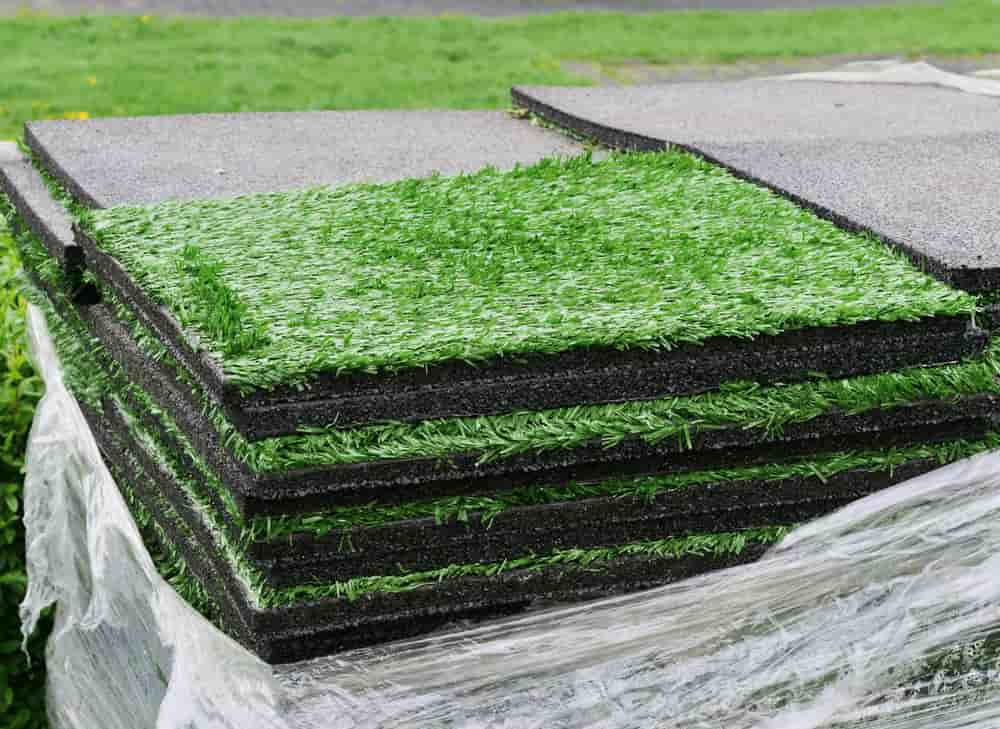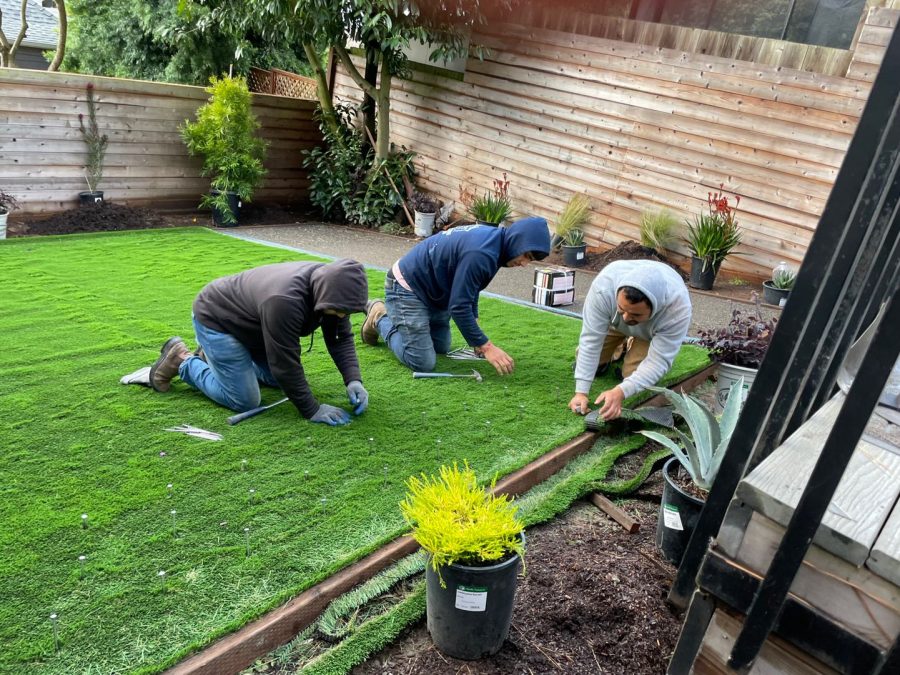Durable Arizona Artificial Turf for Home and Commercial Applications
Durable Arizona Artificial Turf for Home and Commercial Applications
Blog Article
Delve Into the Environmental Benefits of Opting for Artificial Lawn Solutions
The adoption of synthetic grass options provides an engaging opportunity to attend to pressing ecological difficulties. By considerably minimizing water usage and decreasing the application of dangerous chemicals, these options not only promote lasting landscaping however additionally safeguard regional communities.
Water Conservation Advantages
One of the most considerable advantages of synthetic grass is its capability to conserve water. Typical turf lawns require considerable irrigation, especially in locations vulnerable to drought or water limitations. In contrast, synthetic grass does not need watering, substantially decreasing the overall demand for water sources. This feature is particularly advantageous in dry areas where water shortage is a pressing concern.
By removing the demand for routine watering, synthetic grass adds to lasting landscape techniques and aids reduce the ecological effect of extreme water intake. Moreover, the preservation of water reaches the decrease of drainage, which can bring about soil erosion and waterway air pollution.
In addition, the installation of synthetic grass allows towns and house owners to designate water resources more efficiently, concentrating on essential uses such as alcohol consumption water and agriculture. The shift towards synthetic grass not only advertises responsible water use yet additionally aligns with broader ecological objectives intended at protecting natural deposits.
As communities increasingly focus on sustainability, the water preservation benefits of synthetic grass offer an engaging case for its fostering in household and commercial landscape design projects.
Lowered Chemical Usage
The shift to artificial turf significantly reduces the dependence on chemical therapies frequently utilized in natural grass maintenance. Typical lawn administration typically involves the application of chemicals, plant foods, and herbicides to promote growth and control bugs. These chemicals can pose threats to human health, regional wild animals, and the atmosphere, contributing to soil and water contamination.
In comparison, synthetic lawn removes the demand for these harmful substances. By decreasing the release of artificial substances right into the ecological community, artificial turf advertises healthier soil and water systems.
Furthermore, the absence of chemical drainage associated with synthetic lawn setups assists shield neighborhood waterways from air pollution, sustaining water life and preserving biodiversity. Phoenix turf companies. As neighborhoods increasingly prioritize sustainable practices, choosing artificial turf provides a viable option that straightens with ecological preservation objectives. Through this shift, residential property owners can enjoy rich environment-friendly rooms without compromising environmental health, leading the way for a much more lasting future
Reduced Carbon Footprint

Furthermore, the installation of man-made lawn can result in substantial water preservation. Natural lawns require substantial amounts of water for irrigation, which not only includes to the carbon impact linked with water extraction and treatment however additionally strains neighborhood water resources. In contrast, synthetic grass requires very little maintenance, calling for no watering, thus considerably decreasing water usage and its connected power prices.
Furthermore, the longevity of man-made lawn adds to its decreased carbon effect. With a lifespan of approximately 15 years or even more, the need for constant replacements is diminished, leading to less waste and reduced energy consumption in manufacturing and taking care of traditional grass choices. In general, synthetic grass presents a sustainable option for environmentally aware landscaping.
Habitat Preservation
Environment preservation is a crucial consideration in the argument over landscaping selections, particularly when comparing synthetic grass to natural grass. Natural turf lawns frequently require considerable upkeep, consisting of using pesticides, herbicides, and plant foods, which can adversely influence regional environments. These chemicals can leach into the dirt and waterways, damaging native plants and fauna and interfering with local environments.
Man-made lawn removes the need for dangerous chemicals, thereby safeguarding close-by wildlife and preserving the honesty of bordering ecosystems. The installation of synthetic grass can lead to the conversion of previous lawn locations right into more biodiverse landscapes, such as pollinator gardens or indigenous plant locations, which can support regional wildlife.
Ultimately, the transition to synthetic weblink turf not only preserves water and minimizes upkeep efforts but also promotes an extra unified connection in between human tasks and the all-natural atmosphere, advertising environment preservation while doing so.
Long-Term Sustainability
Long-term sustainability is a critical consider assessing the advantages of synthetic lawn over standard yard yards. Among the most significant advantages of synthetic grass is its durability; it can last approximately 15-20 years with marginal maintenance, whereas natural grass calls for regular reseeding and replacement. This long life lowers the requirement for constant sources, such as water, fertilizers, and pesticides, which are essential for maintaining a healthy and balanced turf yard.
Furthermore, fabricated lawn adds to a decrease in carbon discharges connected with grass treatment devices. Conventional lawns usually need gas-powered mowers, trimmers, and blowers, every one of which add to air contamination. Phoenix turf companies. In comparison, synthetic grass gets rid of Learn More Here the demand for such devices, advertising a cleaner setting
Furthermore, the manufacturing of synthetic lawn progressively makes use of recycled products, boosting its sustainability profile. As suppliers embrace eco-friendly practices, the ecological impact of synthetic grass continues to reduce.

Verdict
The adoption of synthetic grass remedies provides substantial ecological advantages, consisting of considerable water conservation, lowered dependence on hazardous chemicals, and a lower carbon impact. Fabricated lawn help in preserving all-natural environments by reducing land disruption and advertising long-lasting sustainability via the use of sturdy materials. Jointly, these factors emphasize the possibility of man-made turf to contribute favorably to environmental health and offer a practical choice to typical landscape design techniques in an increasingly resource-conscious world.
In contrast, synthetic turf does not need watering, substantially reducing the total need for water sources. By lessening the release of artificial compounds into the ecological community, man-made turf promotes healthier dirt and water systems.
Moreover, the setup of fabricated turf can result in considerable water preservation. In comparison, man-made grass needs very little upkeep, needing no watering, thus significantly minimizing hop over to these guys water usage and its linked power prices.

Report this page